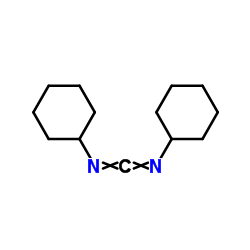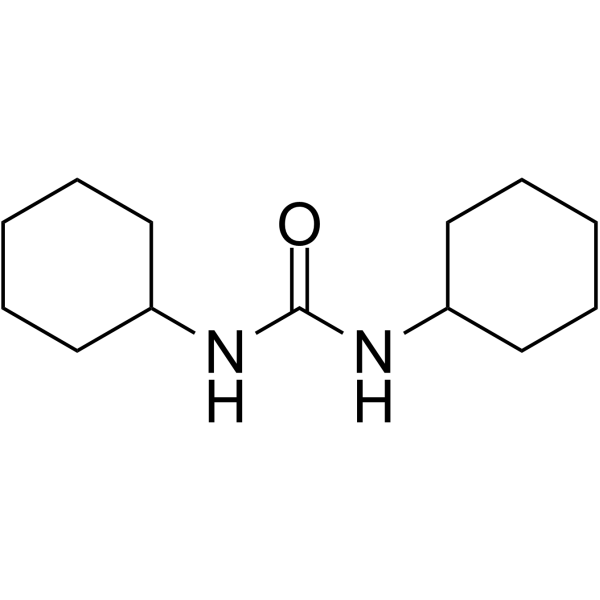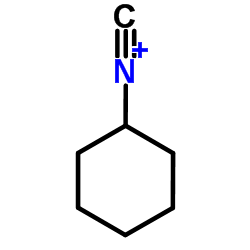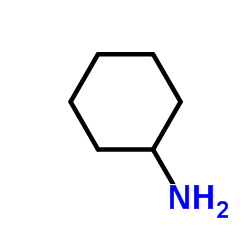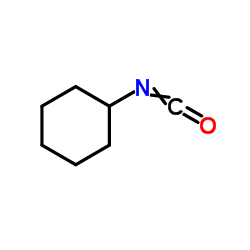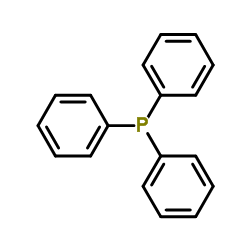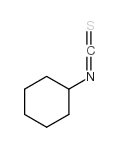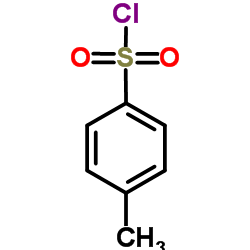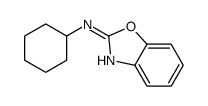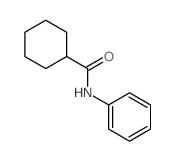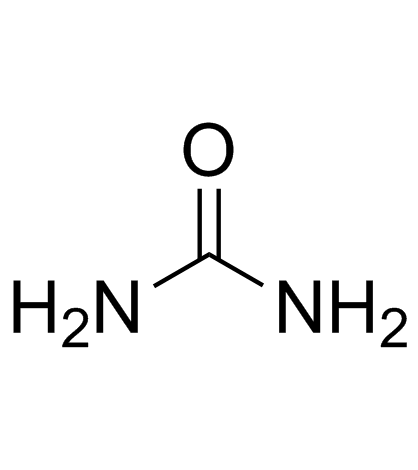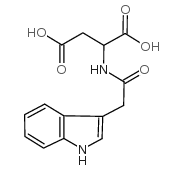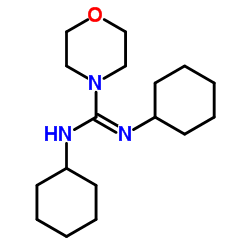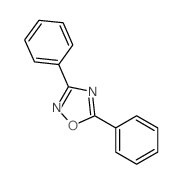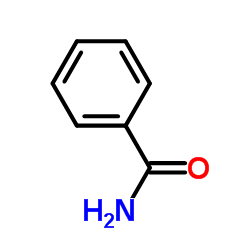538-75-0
| 中文名 | 二环己基碳二亚胺 |
|---|---|
| 英文名 | 1,3-dicyclohexylcarbodiimide |
| 中文别名 |
N,N'-二环己基碳二亚胺
N,N'-二环己基碳酰亚胺 N,N'-甲基四基双环己胺 |
| 英文别名 |
Cyclohexanamine, N-(cyclohexylcarbonimidoyl)-
N,N'-Methanetetraylbiscyclohexanamine EINECS 208-704-1 N,N‘-Dicyclohexylcarbodimide Methanediimine, N,N'-dicyclohexyl- dicyclohexylcarbodiimide dicyclohexyl-carbodiimide Dicyclimide 1,3-di-cyclohexylcarbodiimide N,N'-Dicyclohexylcarbodiimide bis-cyclohexylcarbodiimide Carbodicyclohexylimide N,N'-Dicyclohexylcarbodimide dcc solution DCC N,N′-Dicyclohexylcarbodiimide Cyclohexanamine, N,N'-methanetetraylbis- DCC/DCCI Carbodiimide, dicyclohexyl- N,N’-Dicyclohexylcarbodiimide (DCC) MFCD00011659 N-(N-cyclohexylcarboximidoyl)cyclohexanamine DCCI N,N'-Methanediylidenedicyclohexanamine N,N‘-Dicyclohexylcarbodiimide 1,3-dicyclohexylcarbodiimide DCCD |
| 密度 | 1.325 |
|---|---|
| 沸点 | 122-124 ºC (6 torr) |
| 熔点 | 34-35 °C(lit.) |
| 分子式 | C13H22N2 |
| 分子量 | 206.33 |
| 闪点 | 87 ºC |
| 精确质量 | 206.178299 |
| PSA | 24.72000 |
| LogP | 5.54 |
| 外观性状 | 无色固体 |
| 蒸汽压 | 0.0±0.5 mmHg at 25°C |
| 折射率 | 1.567 |
| 储存条件 | 1.储存于阴凉、干燥、通风良好的库房。远离火种、热源。防止阳光直射。包装密封。应与酸类、食用化学品分开存放,切忌混储。储区应备有合适的材料收容泄漏物。 |
| 稳定性 | 1.按规格使用和贮存,不会发生分解,避免与氧化物接触。 2.对皮肤具有较强的刺激性,使用时需戴上橡胶手套,应在通风橱中进行操作。该试剂容易吸潮,应保存在干燥器中。 |
| 水溶解性 | Reaction |
| 分子结构 | 1、 摩尔折射率:63.46 2、 摩尔体积(cm3/mol):194.2 3、 等张比容(90.2K):486.2 4、 表面张力(dyne/cm):39.2 5、 极化率(10-24cm3):25.16 |
| 计算化学 | 1.疏水参数计算参考值(XlogP):4.7 2.氢键供体数量:0 3.氢键受体数量:2 4.可旋转化学键数量:2 5.互变异构体数量:无 6.拓扑分子极性表面积24.7 7.重原子数量:15 8.表面电荷:0 9.复杂度:201 10.同位素原子数量:0 11.确定原子立构中心数量:0 12.不确定原子立构中心数量:0 13.确定化学键立构中心数量:0 14.不确定化学键立构中心数量:0 15.共价键单元数量:1 |
| 更多 | 1. 性状:白色结晶或微黄色透明液体 2. 密度(g/ cm3,25/4℃):未确定 3. 相对蒸汽密度(g/cm3,空气=1):未确定 4. 熔点(ºC):34~35 5. 沸点(ºC,常压):154-156 6. 沸点(ºC,8kPa):未确定 7. 折射率:未确定 8. 闪点(ºC):未确定 9. 比旋光度(º):未确定 10. 自燃点或引燃温度(ºC):未确定 11. 蒸气压(kPa,25ºC):未确定 12. 饱和蒸气压(kPa,55.1ºC):未确定 13. 燃烧热(KJ/mol):未确定 14. 临界温度(ºC):未确定 15. 临界压力(KPa):未确定 16. 油水(辛醇/水)分配系数的对数值:未确定 17. 爆炸上限(%,V/V):未确定 18. 爆炸下限(%,V/V):未确定 19. 溶解性:易溶于二氯甲烷、四氢呋喃、乙腈以及N,N-二甲基甲酰胺。 |
Synonym:DCC; N,N'-Methanetetraylbiscyclohexanamine Section 2 - COMPOSITION, INFORMATION ON INGREDIENTS
Risk Phrases: 22 24 41 43 Section 3 - HAZARDS IDENTIFICATION EMERGENCY OVERVIEW
Harmful if swallowed. Toxic in contact with skin. Risk of serious damage to eyes. May cause sensitization by skin contact.Moisture sensitive.The toxicological properties of this material have not been fully investigated. Potential Health Effects Eye: Causes severe eye irritation. Skin: Causes moderate skin irritation. Ingestion: The toxicological properties of this substance have not been fully investigated. Inhalation: The toxicological properties of this substance have not been fully investigated. Chronic: No information found. Section 4 - FIRST AID MEASURES Eyes: Immediately flush eyes with plenty of water for at least 15 minutes, occasionally lifting the upper and lower eyelids. Get medical aid immediately. Skin: Get medical aid immediately. Immediately flush skin with plenty of water for at least 15 minutes while removing contaminated clothing and shoes. Ingestion: If victim is conscious and alert, give 2-4 cupfuls of milk or water. Never give anything by mouth to an unconscious person. Get medical aid immediately. Inhalation: Remove from exposure and move to fresh air immediately. If not breathing, give artificial respiration. If breathing is difficult, give oxygen. Get medical aid. Notes to Physician: Section 5 - FIRE FIGHTING MEASURES General Information: As in any fire, wear a self-contained breathing apparatus in pressure-demand, MSHA/NIOSH (approved or equivalent), and full protective gear. During a fire, irritating and highly toxic gases may be generated by thermal decomposition or combustion. Extinguishing Media: Use water spray, dry chemical, carbon dioxide, or chemical foam. Section 6 - ACCIDENTAL RELEASE MEASURES General Information: Use proper personal protective equipment as indicated in Section 8. Spills/Leaks: Absorb spill with inert material (e.g. vermiculite, sand or earth), then place in suitable container. Clean up spills immediately, observing precautions in the Protective Equipment section. Avoid generating dusty conditions. Provide ventilation. Section 7 - HANDLING and STORAGE Handling: Wash thoroughly after handling. Remove contaminated clothing and wash before reuse. Use with adequate ventilation. Minimize dust generation and accumulation. Avoid contact with eyes, skin, and clothing. Keep container tightly closed. Avoid ingestion and inhalation. Storage: Store in a tightly closed container. Store in a cool, dry, well-ventilated area away from incompatible substances. Section 8 - EXPOSURE CONTROLS, PERSONAL PROTECTION Engineering Controls: Use adequate ventilation to keep airborne concentrations low. Exposure Limits CAS# 538-75-0: Personal Protective Equipment Eyes: Wear appropriate protective eyeglasses or chemical safety goggles as described by OSHA's eye and face protection regulations in 29 CFR 1910.133 or European Standard EN166. Skin: Wear appropriate protective gloves to prevent skin exposure. Clothing: Wear appropriate protective clothing to prevent skin exposure. Respirators: Follow the OSHA respirator regulations found in 29 CFR 1910.134 or European Standard EN 149. Use a NIOSH/MSHA or European Standard EN 149 approved respirator if exposure limits are exceeded or if irritation or other symptoms are experienced. Section 9 - PHYSICAL AND CHEMICAL PROPERTIES Physical State: Solid Color: white Odor: None reported. pH: Not available. Vapor Pressure: Not available. Viscosity: Not available. Boiling Point: 122-124 deg C Freezing/Melting Point: 34-35 deg C Autoignition Temperature: Not applicable. Flash Point: Not applicable. Explosion Limits, lower: Not available. Explosion Limits, upper: Not available. Decomposition Temperature: Not available. Solubility in water: Reacts with water. Specific Gravity/Density: Not available. Molecular Formula: C13H22N2 Molecular Weight: 206.1674 Section 10 - STABILITY AND REACTIVITY Chemical Stability: Stable under normal temperatures and pressures. Conditions to Avoid: Incompatible materials, ignition sources, exposure to moist air or water. Incompatibilities with Other Materials: Acids, strong oxidizing agents. Hazardous Decomposition Products: Nitrogen oxides, carbon monoxide, carbon dioxide. Hazardous Polymerization: Has not been reported. Section 11 - TOXICOLOGICAL INFORMATION RTECS#: CAS# 538-75-0: FF2160000 LD50/LC50: CAS# 538-75-0: Dermal, guinea pig: LD50 = 10 mL/kg; Inhalation, rat: LC50 = 159 mg/m3/6H; Oral, mouse: LD50 = >800 mg/kg; Oral, rat: LD50 = 400 mg/kg. Rat: LC50 = 0.159-0.417 Carcinogenicity: Dicyclohexylcarbodiimide - Not listed by ACGIH, IARC, or NTP. Other: See actual entry in RTECS for complete information. Section 12 - ECOLOGICAL INFORMATION Section 13 - DISPOSAL CONSIDERATIONS Products which are considered hazardous for supply are classified as Special Waste and the disposal of such chemicals is covered by regulations which may vary according to location. Contact a specialist disposal company or the local waste regulator for advice. Empty containers must be decontaminated before returning for recycling. Section 14 - TRANSPORT INFORMATION IATA No information available. IMO No information available. RID/ADR No information available. Section 15 - REGULATORY INFORMATION European/International Regulations European Labeling in Accordance with EC Directives Hazard Symbols: T Risk Phrases: R 22 Harmful if swallowed. R 24 Toxic in contact with skin. R 41 Risk of serious damage to eyes. R 43 May cause sensitization by skin contact. Safety Phrases: S 26 In case of contact with eyes, rinse immediately with plenty of water and seek medical advice. S 28 After contact with skin, wash immediately with... WGK (Water Danger/Protection) CAS# 538-75-0: 2 Canada CAS# 538-75-0 is listed on Canada's DSL List. CAS# 538-75-0 is not listed on Canada's Ingredient Disclosure List. US FEDERAL TSCA CAS# 538-75-0 is listed on the TSCA inventory. SECTION 16 - ADDITIONAL INFORMATION N/A |
|
生态学数据: 该物质对环境可能有危害,对水体应给予特别注意。
|
| 符号 |



GHS05, GHS07, GHS08 |
|---|---|
| 信号词 | Danger |
| 危害声明 | H302 + H312-H315-H317-H318-H335-H336-H351-H373 |
| 警示性声明 | P260-P280-P301 + P312 + P330-P305 + P351 + P338 + P310 |
| 个人防护装备 | Faceshields;full-face respirator (US);Gloves;Goggles;multi-purpose combination respirator cartridge (US);type ABEK (EN14387) respirator filter |
| 危害码 (欧洲) | Xn:Harmful; |
| 风险声明 (欧洲) | R21;R36/38;R41;R43 |
| 安全声明 (欧洲) | S26-S36/37/39-S45-S41-S24-S37/39-S24/25-S36-S16-S53 |
| 危险品运输编码 | UN 2922 8/PG 2 |
| WGK德国 | 3 |
| RTECS号 | FF2160000 |
| 包装等级 | II |
| 危险类别 | 6.1 |
| 海关编码 | 29252000 |
| 上游产品 10 | |
|---|---|
| 下游产品 10 | |
| 海关编码 | 2921300090 |
|---|---|
| 中文概述 | 2921300090 其他环(烷,烯,萜烯)单胺或多胺(包括其衍生物及它们的盐). 增值税率:17.0% 退税率:9.0% 监管条件:无 最惠国关税:6.5% 普通关税:30.0% |
| 申报要素 | 品名, 成分含量, 用途 |
| Summary | 2921300090 other cyclanic, cyclenic or cyclotherpenic mono- or polyamines, and their derivatives; salts thereof。Supervision conditions:None。VAT:17.0%。Tax rebate rate:9.0%。MFN tariff:6.5%。General tariff:30.0% |


